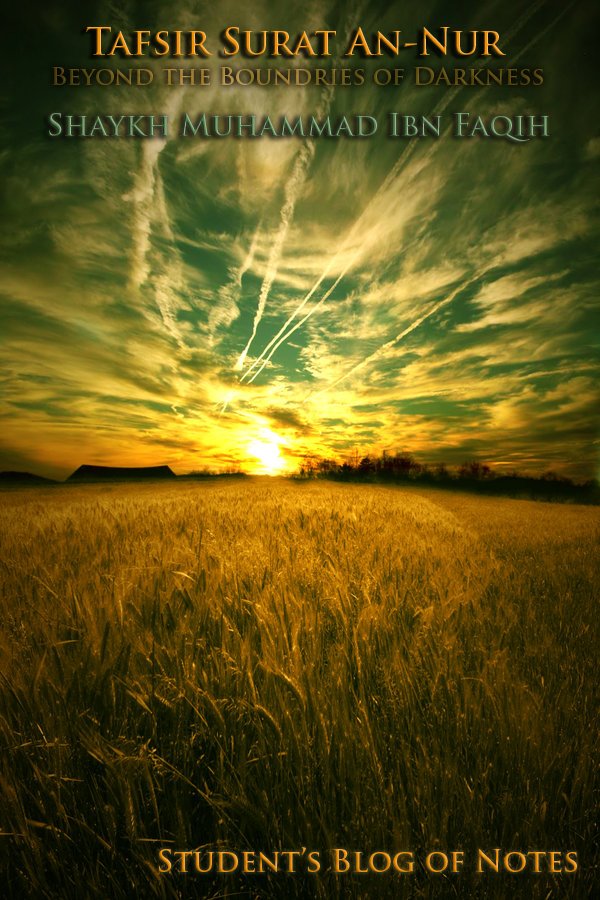Review from Last Week
The Prophet (saws) prohibited the believers from sitting (gathering) in the streets (sitting on the side of the road). The sahabah said that they didn’t have any other option and that this was part of their tradition. The prophet then said, “If you insist, then observe the rights of the streets.
The etiquettes are:
1. Lowering your gaze
2. Return the greeting (salam)
3. Enjoin what is good & forbid what is wrong
4. Hold back from any harm upon anyone
(32) And marry the unmarried among you and the righteous among your male slaves and female slaves. If they should be poor, Allah will enrich them with His bounty, and Allah is all-Encompassing and Knowing.
Definitions
ankiHu : imperative form of nakaHa; nikaH means marriage; implies a two-way commitment
al-ayama (plural of ayyim) : unmarried individual
al-SaliHin : righteous; pious
`ibadikum (plural of `abd) : male slave
ima’ikum (plural of amah) : female slave
fuqara' (plural of faqir) : needy
yughnihim : to enrich them
Tafsir
* Allah in this verse is showing the proper and Islamic method of fulfilling one’s physical and emotional needs.
* The Prophet (saws) says, “If a man with whom you are pleased with his level of commitment to his faith and his trust, marry him your daughters. If you do not follow this, it will turn into a huge fitnah/corruption will spread.”
* This verse is addressing the guardians (parents, fathers, uncles, heads of households, the community leadership, etc.) to marry the unmarried children/community members, to pursue it and to help facilitate this as well.
* If the unmarried chooses not to get married, then no one can force him. This ayah makes the act of getting married mustahabb (recommended), even though it is a sunnah. But the prophet (saws) said, “Oh young men, whosoever can afford marriage, then let them get married, for it is more effective in helping you lower his gaze and preserve his chastity. And whosoever cannot do so, then let him fast.”
Slaves and their Status in Islam
* Abolishing slavery completely would have caused a war when Islam was revealed.
* Instead, it regulated it and changed the perception of slaves. Here, Allah (swt) says to help them get married, if they are righteous.
* Unjustified physical abuse to a slave is grounds for the slave to obtain their own freedom.
Waliyy – guardian
* This ayah implies that having a waliyy is necessary, at least on behalf of the woman.
Financial Status
* Financial ability is necessary, but it is not a condition. Use marriage as a means to achieve financial independence for marriage will motivate a person to achieve financial independence.
Tuesday, April 14, 2009
Subscribe to:
Post Comments (Atom)

No comments:
Post a Comment